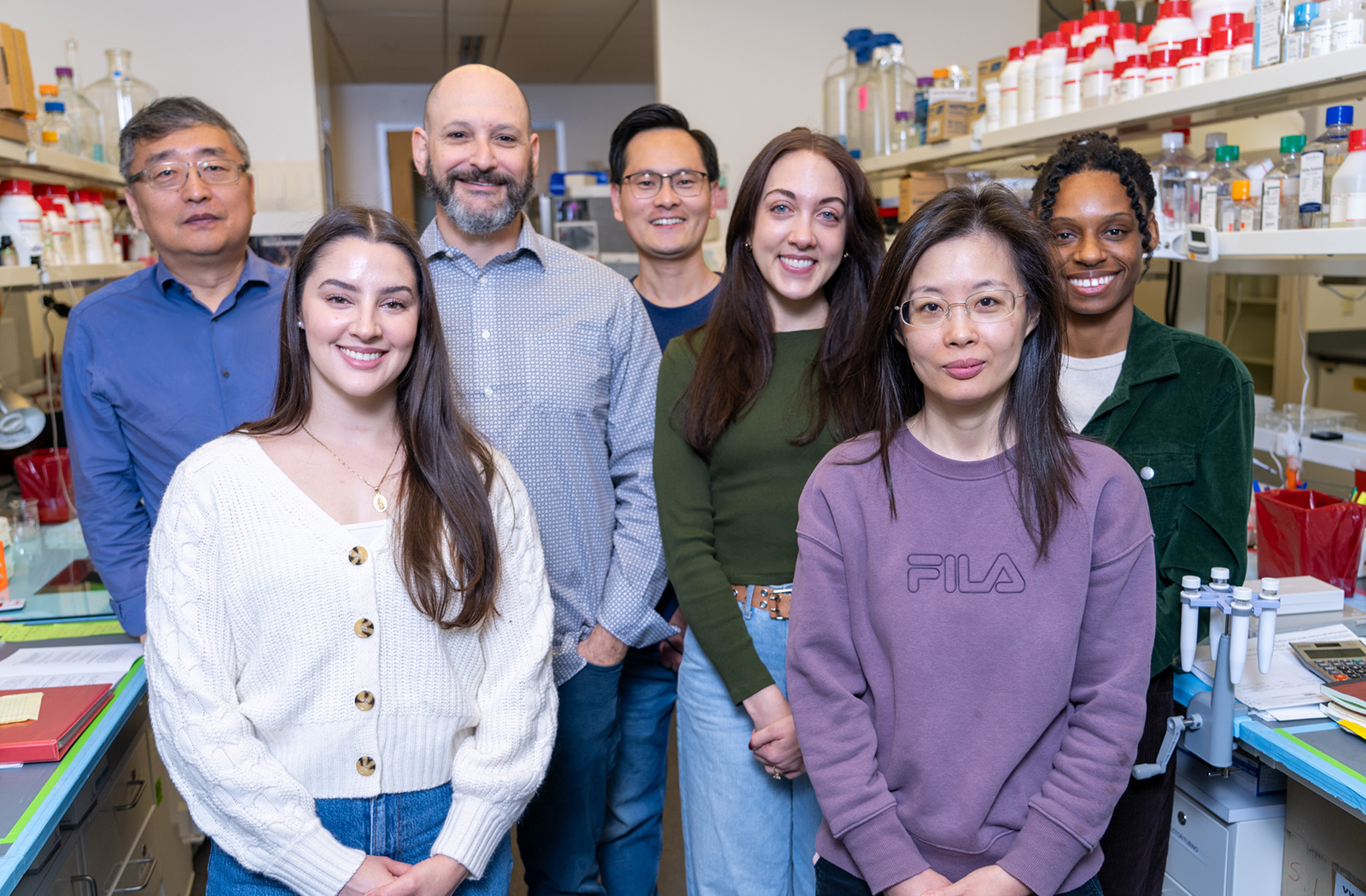
Researchers Exploring How Intimate Partner Violence in Pregnancy Can Affect the Neurodevelopment of Offspring

One in four women experience some form of intimate partner violence (IPV) during their lifetime, according to the National Coalition Against Domestic Violence (NCADV). The effects of IPV can be scarring — physically, mentally and economically.
But, when one in six of those women, as estimated by the American College of Obstetricians and Gynecologists, is first abused during pregnancy, how can one measure the consequences of that abuse on the developing fetus?
That central question is what Shenfeng Qiu, PhD, an associate professor in the Department of Basic Medical Sciences, and Jonathan Lifshitz, PhD, a research professor in the Department of Psychiatry and leader of the Neurotrauma & Social Impact team, plan to discover through their research — Gravida Traumatic Brain Injury (TBI) Impacts Neurodevelopment of the Offspring.
They were recently awarded $2.05 million over five years from the Eunice Kennedy Shriver National Institute of Child Health and Human Development to do so. Their work will extend the preliminary studies supported by local and statewide Fraternal Order of Eagles organizations.
Approximately 90% of IPV survivors report symptoms consistent with persistent post-concussion symptoms. Since pregnancy is associated with increased intensity and frequency of physical assault, the need for a greater understanding was pressing.
“TBI has a prolonged effect on the victim,” Dr. Qiu said. “And any potential effects on the child or the fetus are entirely unknown?” To assess that, Dr. Qiu, who specializes in neurodevelopmental disorders, is utilizing electrophysiology techniques with members of his lab to learn how the fetus’ brain is miswired and miscommunicates.
“The premise of this study is to use well-controlled laboratory techniques to provide initial insights to how developmental trajectories are diverted as a result of abuse during pregnancy,” said Dr. Lifshitz.
Being able to provide that evidence is crucial to leverage the full measure of punishment to the abusers for their actions toward their partner and toward the unborn child. Uncovering the mechanisms that lead to developmental disruption in the unborn child because of abuse would enable physicians to, “diagnose early any developmental disorders that could require additional resources for the child's benefit, so that they can live their best life,” Dr. Lifshitz said.
Drs. Qiu and Lifshitz have identified and tracked adverse neuroimmune responses in offspring exposed to TBI during pregnancy in their models. Next, they will try to understand some of the potential targets and where they could intervene.
“No one has ever done this. There are a handful of studies with epidemiology data, showing that there is this relationship between abuse and birth outcomes. But this is the first time a group is going after these mechanisms,” Dr. Lifshitz explained.
The study aims are threefold. It will assess post-natal behaviors — such as cognition, anxiety, signs of depression and sensorimotor gating. It will evaluate the cortical and hippocampal synaptic physiology and cortical connectivity with electrophysiology and neuronal morphology. And lastly, the study will use cell type-specific transcriptomics to inform circuit development and molecular trajectories.
Research reported in this story was supported by the NIH and Eunice Kennedy Shriver National Institute of Child Health and Human Development under project number R01 HD110860.
The content is solely the responsibility of the authors and does not necessarily represent the official views of the National Institutes of Health.
About the College
Founded in 2007, the University of Arizona College of Medicine – Phoenix inspires and trains exemplary physicians, scientists and leaders to advance its core missions in education, research, clinical care and service to communities across Arizona. The college’s strength lies in our collaborations and partnerships with clinical affiliates, community organizations and industry sponsors. With our primary affiliate, Banner Health, we are recognized as the premier academic medical center in Phoenix. As an anchor institution of the Phoenix Bioscience Core, the college is home to signature research programs in neurosciences, cardiopulmonary diseases, immunology, informatics and metabolism. These focus areas uniquely position us to drive biomedical research and bolster economic development in the region.
As an urban institution with strong roots in rural and tribal health, the college has graduated more than 1,000 physicians and matriculates 130 students each year. Greater than 60% of matriculating students are from Arizona and many continue training at our GME sponsored residency programs, ultimately pursuing local academic and community-based opportunities. While our traditional four-year program continues to thrive, we will launch our recently approved accelerated three-year medical student curriculum with exclusive focus on primary care. This program is designed to further enhance workforce retention needs across Arizona.
The college has embarked on our strategic plan for 2025 to 2030. Learn more.